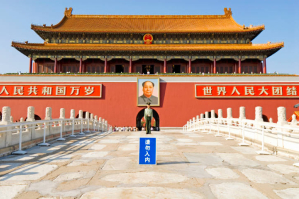
Twenty five years ago today, June 4th, 1989, Chinese troops violently reclaimed the square in Beijing which pro-democracy protesters had occupied for weeks. The Tiananmen Square massacre left thousands of people dead and all but snuffed out the democratic movement.
While the country has seen great economic progress since that notorious day in 1989, there has been little political reform, reveals Chinese dissident activist Chen Guangcheng, and the people of China are "still afraid and silent" about the massacre.
Today, the Chinese government refuses to acknowledge the event or commemorate its victims, continuing to spend 70 billion per year in an attempt to stifle future dissent. The government has continued to crack down on religious freedoms as well, imposing penalties on those involved with unregistered house churches.
However, despite the Chinese government's best efforts to stifle religious freedoms, the events at Tiananmen Square helped spread the gospel in an astounding way.
"The brutal massacre caused many Chinese intellectuals and other elites to lose faith in communism and embrace Christianity," said Loyola University of Maryland professor Carsten Vala. "Following the events, China's church has grown so large that the Communist Party fears its influence."
Rev. Zhang Boli, A human rights activist who was present at Tiananmen in 1989, agrees, saying the Chinese government continues to oppress Christians because the religion is "moving very, very quickly" in the country.
Vala says Chinese Christian leaders look at persecution as a "winnowing effect."
"Those who are not true Christians will leave the churches; the 'Sunday Christians,'" she said.
"The really committed, devout believers will be increasingly strengthened in their faith by this 'winds of persecution' and honestly the church buildings may be torn down, but that doesn't mean the congregations themselves have scattered."
Richard Bush, director and senior fellow at Brookings' Center for East Asian Policy Studies, says the growth of the Chinese church in the midst of adversity is an intensely unique story.
"I am also very interested in this subject because it's a key issue for understanding the dynamics of state and society in China," said Bush.
"Whether one is religious or not, the survival of religious belief and faith in China from 1949 to 1979 is really one of the most inspiring stories that one could ever come across."
Bush said it is appropriate to link Christianity's growth in China and the Tiananmen Square protests "because both were a response to the political and moral vacuum in China in the post-Mao period."
Vala says there are two important ways Christians in the United States can help the growing church in China.
"I think the first thing is to learn more about the diversity of the church. The churches are, some are still flourishing while others are being persecuted," she said.
"Secondly, I think the churches can develop direct connections with church leaders and support them by remedying the shortage of qualified pastors and then they can of course pray for the churches."
By some estimates, there are now more than 100 million Christians in China, and the number continues to grow.






